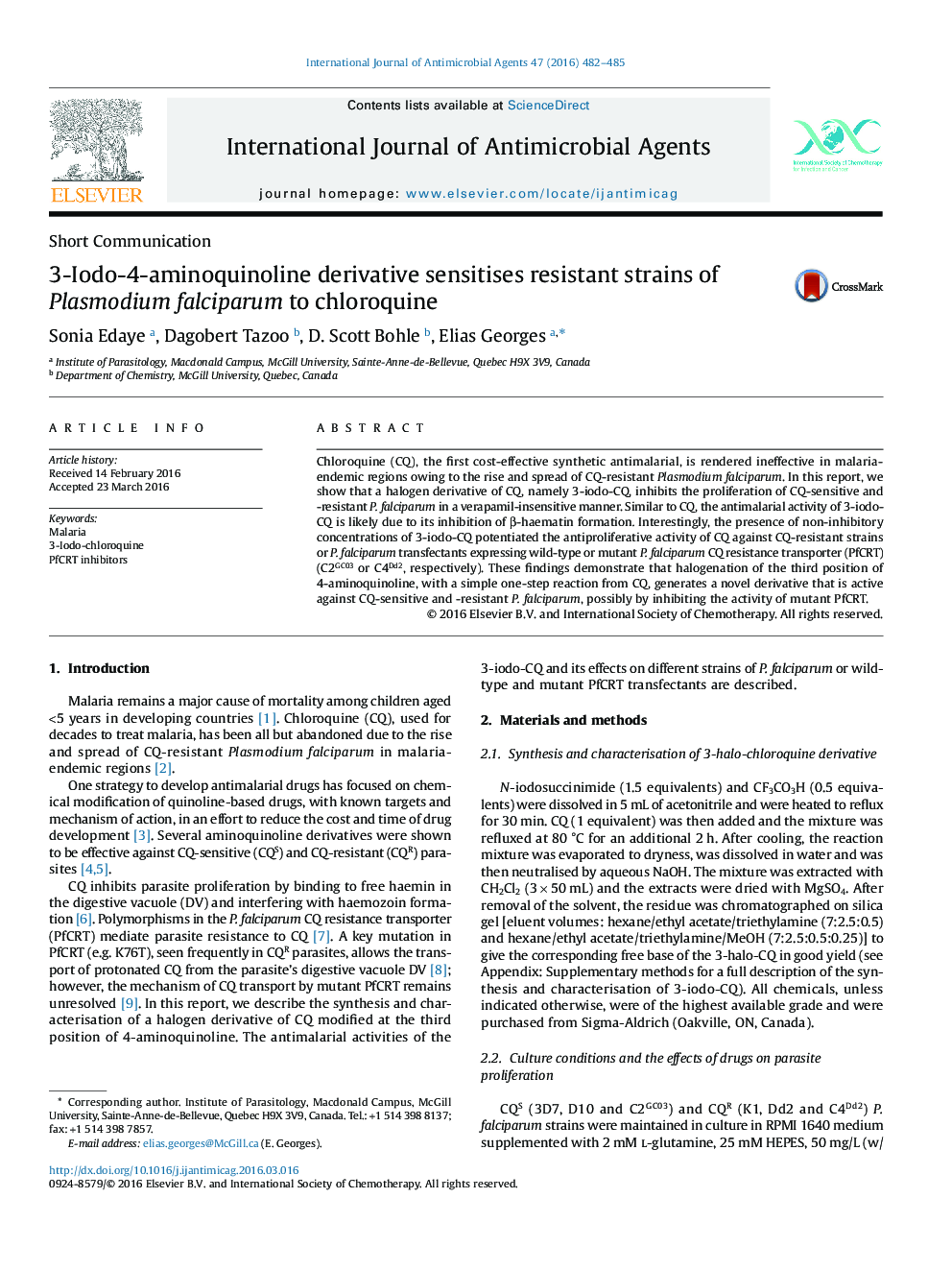| Article ID | Journal | Published Year | Pages | File Type |
|---|---|---|---|---|
| 3358466 | International Journal of Antimicrobial Agents | 2016 | 4 Pages |
•Synthesis and characterisation of novel chloroquine (CQ) derivative, i.e. 3-iodo-CQ, modified at the third position of 4-aminoquinoline moiety.•3-Iodo-CQ inhibits the proliferation of CQ-sensitive and -resistant Plasmodium falciparum, likely by reducing β-haematin formation.•3-Iodo-CQ synergises with CQ to inhibit the proliferation of CQ-resistant P. falciparum isolates.•Modification of the third position of aminoquinoline unlocks huge potential to generate novel quinoline-based drugs.
Chloroquine (CQ), the first cost-effective synthetic antimalarial, is rendered ineffective in malaria-endemic regions owing to the rise and spread of CQ-resistant Plasmodium falciparum. In this report, we show that a halogen derivative of CQ, namely 3-iodo-CQ, inhibits the proliferation of CQ-sensitive and -resistant P. falciparum in a verapamil-insensitive manner. Similar to CQ, the antimalarial activity of 3-iodo-CQ is likely due to its inhibition of β-haematin formation. Interestingly, the presence of non-inhibitory concentrations of 3-iodo-CQ potentiated the antiproliferative activity of CQ against CQ-resistant strains or P. falciparum transfectants expressing wild-type or mutant P. falciparum CQ resistance transporter (PfCRT) (C2GC03 or C4Dd2, respectively). These findings demonstrate that halogenation of the third position of 4-aminoquinoline, with a simple one-step reaction from CQ, generates a novel derivative that is active against CQ-sensitive and -resistant P. falciparum, possibly by inhibiting the activity of mutant PfCRT.
Graphical abstractFigure optionsDownload full-size imageDownload high-quality image (57 K)Download as PowerPoint slide
